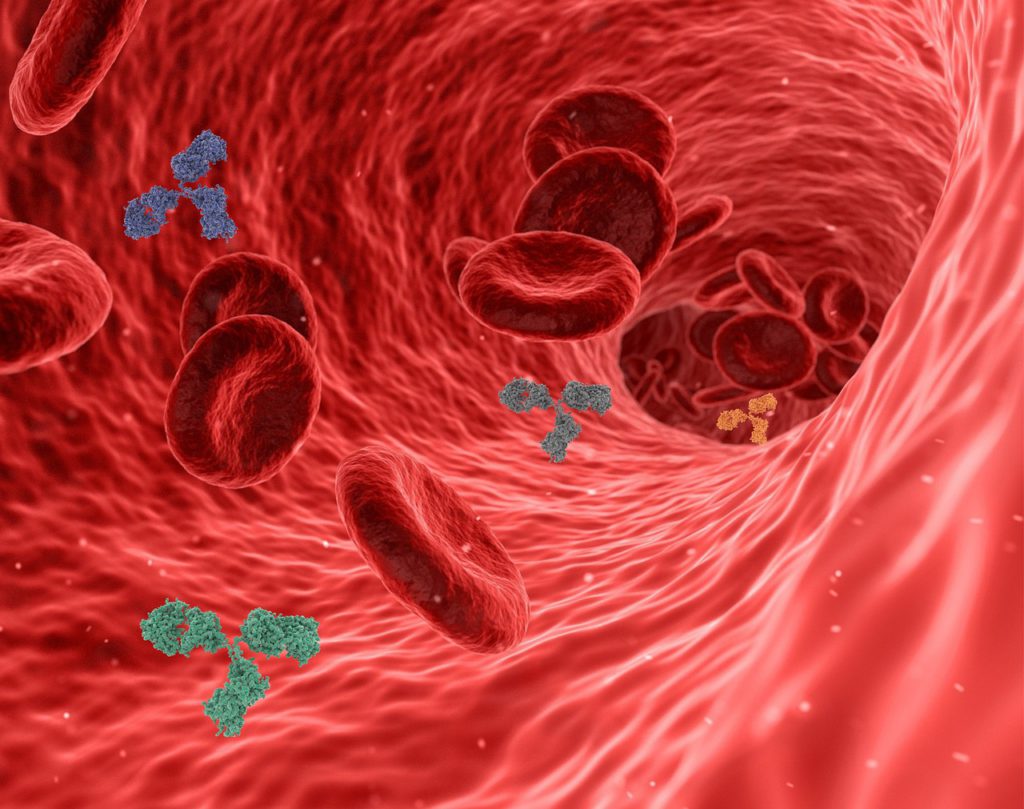In this article, we will explore the benefits of quercetin as an immune booster. You will learn about the potential effects of quercetin on the immune system and how it may help strengthen your body’s defenses. We will also discuss the food sources of quercetin and any potential side effects. By the end of this article, you will have a better understanding of quercetin and its role in supporting your immune health.
Exploring the Benefits of Quercetin as an Immune Booster
Is quercetin an immune booster? This question has piqued the interest of many individuals looking for natural ways to strengthen their immune system. Quercetin, a plant pigment found in various fruits, vegetables, and beverages, has gained attention for its potential immune-boosting properties. In this article, we will delve into the sources, chemical properties, and mechanism of action of quercetin, as well as explore its benefits for the immune system, role in allergy relief, support in respiratory health, antiviral and antibacterial effects, protection against chronic diseases, and potential therapeutic applications.
What is Quercetin?
Quercetin is a type of flavonoid, a group of plant-based compounds with antioxidant properties. It is widely distributed in fruits such as apples, berries, and grapes, as well as vegetables like onions and tomatoes. Other sources of quercetin include tea, red wine, and certain herbs. The rich presence of quercetin in our everyday diet makes it easily accessible for those looking to incorporate it into their immune-boosting regimen.
Chemical Properties of Quercetin
Quercetin is characterized by its yellow color and crystalline structure. It is classified as a polyphenolic compound and belongs to the flavonol subclass of flavonoids. The chemical formula of quercetin is C15H10O7, and its molecular weight is 302.24 grams per mole. These chemical properties contribute to its antioxidant and anti-inflammatory effects, which make it a potential candidate for immune modulation.
Mechanism of Action
How Quercetin Affects the Immune System
Quercetin has been found to modulate the immune system through various mechanisms. It can influence the activity of immune cells, such as lymphocytes and macrophages, which play a crucial role in the immune response. Additionally, quercetin can inhibit the release of inflammatory mediators, such as cytokines and chemokines, which are involved in the inflammatory response. These immune-modulating effects of quercetin contribute to its potential as an immune booster.
Interactions with Immune Cells
Quercetin has been shown to interact with immune cells in several ways. It can enhance the function of natural killer (NK) cells, which are important in defending against viral infections and cancer cells. Quercetin also has the ability to regulate T-helper cell balance, promoting a more balanced immune response. Furthermore, quercetin can inhibit the activation of mast cells, which play a role in allergic reactions. These interactions with immune cells contribute to quercetin’s potential to enhance immune response and alleviate allergic symptoms.

Benefits for Immune System
Enhancement of Immune Response
Quercetin’s immune-boosting properties stem from its ability to enhance immune response. Research has shown that quercetin can increase the production of antibodies, substances produced by the immune system to recognize and neutralize pathogens. By boosting antibody production, quercetin can support the body’s ability to fight off infections and maintain overall immune health.
Reduced Inflammation and Oxidative Stress
Quercetin’s antioxidant and anti-inflammatory effects have been linked to its potential to reduce inflammation and oxidative stress, both of which can affect immune function. Chronic inflammation and high levels of oxidative stress can weaken the immune system and make individuals more susceptible to infections and chronic diseases. Quercetin’s ability to combat inflammation and oxidative stress may contribute to its immune-boosting benefits.
Role in Allergy Relief
Anti-Allergic Properties of Quercetin
Quercetin has gained recognition for its potential to alleviate allergy symptoms. Allergic reactions occur when the immune system overreacts to harmless substances, such as pollen or pet dander. Quercetin has been found to possess anti-allergic properties by inhibiting the release of histamine, a key mediator of allergic reactions. By reducing histamine release, quercetin can potentially alleviate allergy symptoms, such as sneezing, itching, and nasal congestion.
Inhibition of Histamine Release
Histamine release is a central event in allergic reactions, causing the characteristic symptoms experienced by individuals with allergies. Quercetin has been shown to inhibit the release of histamine from mast cells, specialized immune cells involved in allergic responses. This inhibition of histamine release may contribute to quercetin’s ability to provide relief from allergy symptoms and improve overall quality of life for individuals with allergies.

Support in Respiratory Health
Protection Against Respiratory Infections
Respiratory infections, such as the common cold and influenza, are a common cause of illness, particularly during colder months. Quercetin has been found to possess antiviral properties against various respiratory pathogens, including rhinovirus and influenza virus. By inhibiting the replication of these viral pathogens, quercetin may help prevent respiratory infections and reduce the severity and duration of symptoms.
Improvement in Lung Function
Quercetin has also been associated with improvements in lung function. Research has shown that quercetin supplementation may enhance lung function in individuals with asthma and chronic obstructive pulmonary disease (COPD). These respiratory conditions are characterized by airway narrowing and inflammation, which can impair lung function. Quercetin’s anti-inflammatory effects may help alleviate airway inflammation and improve respiratory symptoms in these individuals.
Antiviral Properties
Effects on Viral Pathogens
Quercetin has demonstrated antiviral properties against a range of viral pathogens. Studies have shown its potential to inhibit the replication of viruses such as influenza A, hepatitis B, and dengue virus. Quercetin achieves this antiviral effect by interfering with viral replication and inhibiting viral attachment and entry into host cells. These antiviral properties make quercetin a promising candidate for the prevention and treatment of viral infections.
Potential Role Against Viral Infections
The ability of quercetin to inhibit viral replication and attachment to host cells suggests its potential role in the prevention and treatment of viral infections. By interfering with viral replication, quercetin may help to reduce viral load and limit the spread of infection. Additionally, quercetin’s anti-inflammatory effects may help alleviate symptoms associated with viral infections, such as fever and inflammation.
Antibacterial Effects
Quercetin as a Natural Antibacterial Agent
In addition to its antiviral properties, quercetin has been found to possess antibacterial effects. It can inhibit the growth of various bacteria, including those that cause foodborne illnesses and infections. Quercetin achieves this antibacterial effect by disrupting bacterial cell membranes and interfering with bacterial metabolism. These antibacterial properties make quercetin a possible alternative to conventional antibiotics in the treatment of bacterial infections.
Inhibition of Bacterial Growth
Quercetin has been shown to effectively inhibit the growth of bacteria such as Escherichia coli (E. coli), Staphylococcus aureus, and Salmonella enterica. These bacterial species are known to cause a wide range of infections, from urinary tract infections to food poisoning. Quercetin’s ability to inhibit bacterial growth offers promising potential for the development of natural antibacterial agents.
Protection Against Chronic Diseases
Quercetin’s Role in Preventing Chronic Diseases
Quercetin’s antioxidant and anti-inflammatory effects have been found to contribute to its potential to protect against chronic diseases. Chronic inflammation and oxidative stress are underlying factors in the development of various diseases, including cardiovascular disease, neurodegenerative disorders, and cancer. Quercetin’s ability to combat inflammation and oxidative stress may help reduce the risk of developing these chronic diseases.
Reduction in Risk Factors
In addition to its antioxidant and anti-inflammatory effects, quercetin has been associated with a reduction in risk factors for chronic diseases. Research has shown that quercetin supplementation may improve markers of cardiovascular health, such as blood pressure and cholesterol levels. Quercetin has also been found to protect against neurodegenerative diseases by reducing neuroinflammation and improving cognitive function. These findings suggest that quercetin may have a role in the prevention and management of chronic diseases.
Potential Therapeutic Applications
Quercetin in the Treatment of Specific Conditions
Quercetin has shown promise in the treatment of specific conditions, in addition to its immune-boosting and disease-preventing effects. Research has explored the use of quercetin in the management of conditions such as allergies, asthma, arthritis, and diabetes. While further research is needed to establish the efficacy and safety of quercetin in these therapeutic applications, the initial findings are promising.
Exploring Dosage and Delivery Methods
Determining the optimal dosage and delivery methods of quercetin is an area of ongoing research. Quercetin is most commonly consumed through the diet, but supplementation may be necessary to achieve therapeutic levels. Additionally, research is being conducted to explore the use of novel delivery methods, such as nanotechnology, to enhance the bioavailability and effectiveness of quercetin.
Conclusion
In conclusion, quercetin has emerged as a potential immune booster with a range of benefits for overall health. Its immune-modulating properties, anti-allergic effects, support in respiratory health, antiviral and antibacterial properties, protection against chronic diseases, and potential therapeutic applications make it a promising natural compound. While further research is needed to fully understand the mechanisms of action and establish optimal dosage and delivery methods, quercetin’s immune-boosting benefits warrant exploration. By incorporating quercetin-rich foods or considering quercetin supplementation, you can support your immune system and promote overall well-being.






